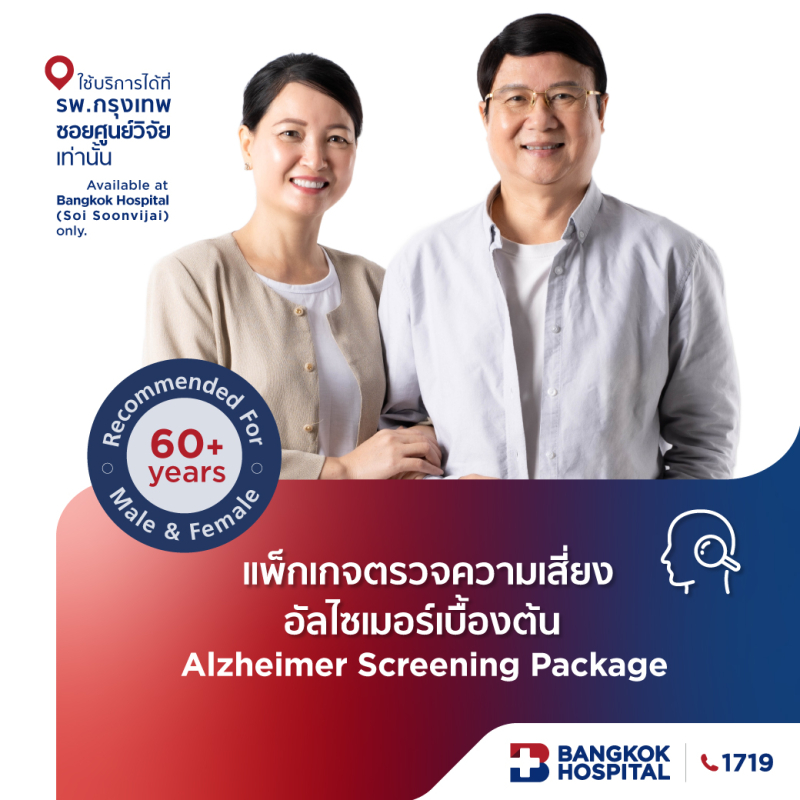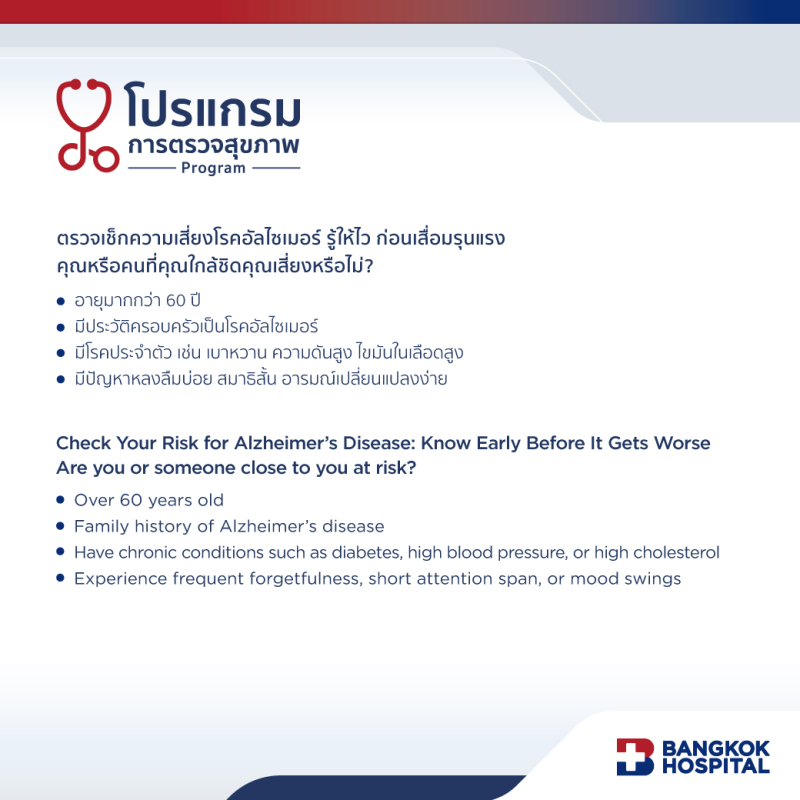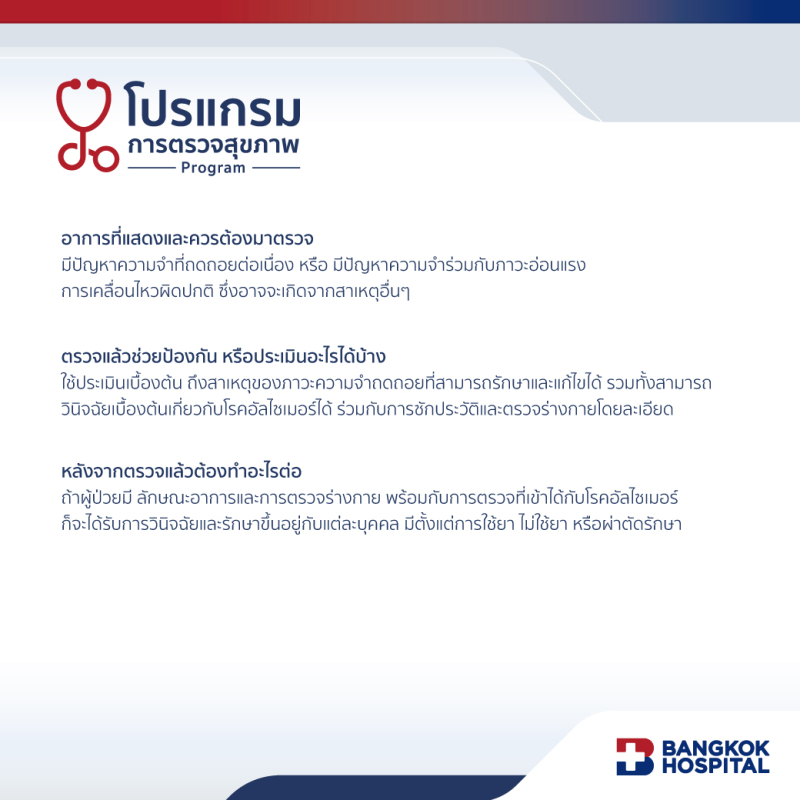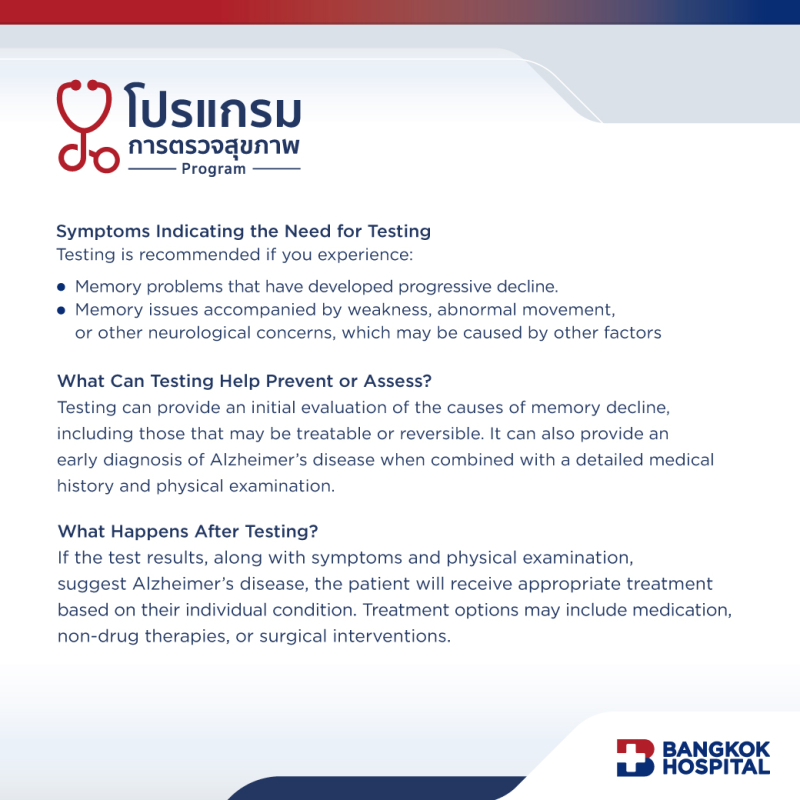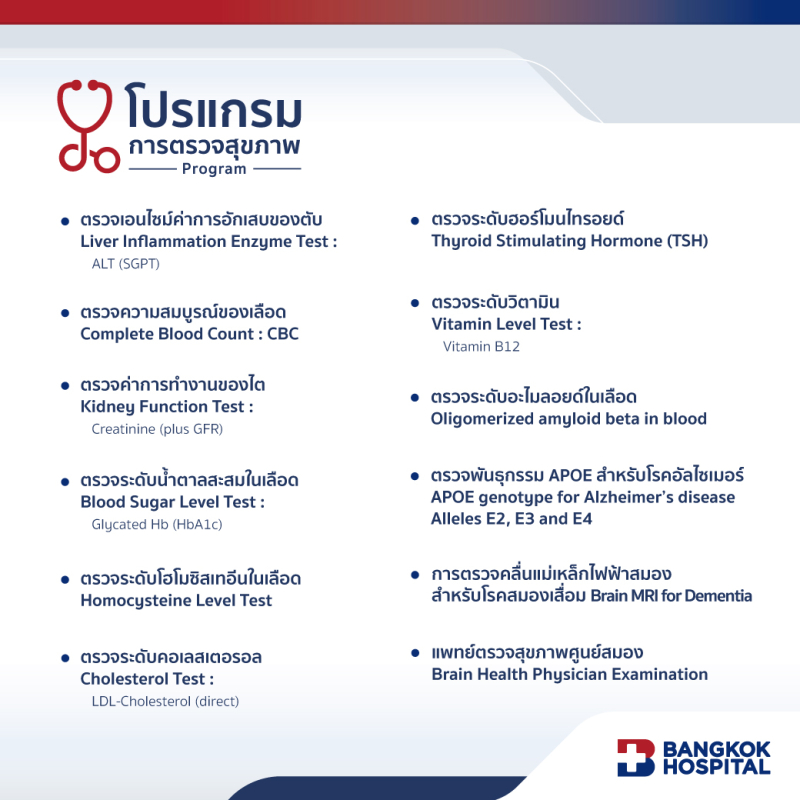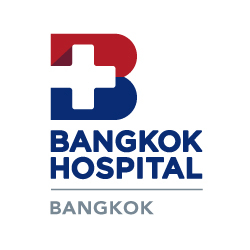ตรวจเช็กความเสี่ยงโรคอัลไซเมอร์ รู้ให้ไว ก่อนเสื่อมรุนแรง
คุณหรือคนที่คุณใกล้ชิดคุณเสี่ยงหรือไม่?
- • อายุมากกว่า 60 ปี
- • มีประวัติครอบครัวเป็นโรคอัลไซเมอร์
- • มีโรคประจำตัว เช่น เบาหวาน ความดันสูง ไขมันในเลือดสูง
- • มีปัญหาหลงลืมบ่อย สมาธิสั้น อารมณ์เปลี่ยนแปลงง่าย
อาการที่แสดงและควรต้องมาตรวจ
มีปัญหาความจำที่เกิดขึ้นในระยะเวลาที่รวดเร็วน้อยกว่า 1 ปี หรือ มีปัญหาความจำร่วมกับภาวะอ่อนแรง การเคลื่อนไหวผิดปกติ ซึ่งอาจจะเกิดจากสาเหตุอื่นๆ
ตรวจแล้วช่วยป้องกัน หรือประเมินอะไรได้บ้าง
ใช้ประเมินเบื้องต้น ถึงสาเหตุของภาวะความจำถดถอยที่สามารถรักษาและแก้ไขได้ รวมทั้งสามารถวินิจฉัยเบื้องต้นเกี่ยวกับโรคอัลไซเมอร์ได้ ร่วมกับการซักประวัติและตรวจร่างกายโดยละเอียด
หลังจากตรวจแล้วต้องทำอะไรต่อ
ถ้าผู้ป่วยมี ลักษณะอาการและการตรวจร่างกาย พร้อมกับการตรวจที่เข้าได้กับโรคอัลไซเมอร์ ก็จะได้รับการวินิจฉัยและรักษาขึ้นอยู่กับแต่ละบุคคล มีตั้งแต่การใช้ยา ไม่ใช้ยา หรือผ่าตัดรักษา
Check Your Risk for Alzheimer’s Disease: Know Early Before It Gets Worse
Are you or someone close to you at risk?
- • Over 60 years old
- • Family history of Alzheimer’s disease
- • Have chronic conditions such as diabetes, high blood pressure, or high cholesterol
- • Experience frequent forgetfulness, short attention span, or mood swings
-
Symptoms Indicating the Need for Testing
Testing is recommended if you experience:
- - Memory problems that have developed within a short period (less than one year)
- -Memory issues accompanied by weakness, abnormal movement, or other neurological concerns, which may be caused by other factors
What Can Testing Help Prevent or Assess?
Testing can provide an initial evaluation of the causes of memory decline, including those that may be treatable or reversible. It can also provide an early diagnosis of Alzheimer’s disease when combined with a detailed medical history and physical examination.
What Happens After Testing?
If the test results, along with symptoms and physical examination, suggest Alzheimer’s disease, the patient will receive appropriate treatment based on their individual condition. Treatment options may include medication, non-drug therapies, or surgical interventions.

 TH
TH English
English 